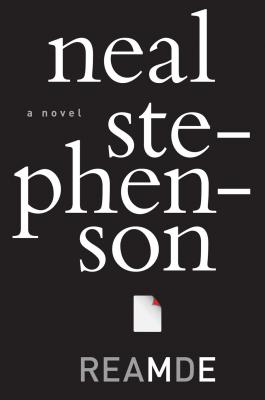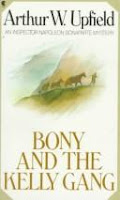 The novel's cyberpunk elements center around the computer game T'Rain (the fictional successor to the online hegemony of World of Warcraft), whose most salient characteristic its elaborate economy, based on a virtual-gold standard whose integrity is ensured by an elaborate geological simulation which determines the location of deposits of ore within the game world. The game is designed to exploit, rather than be exploited by, the existence of "gold-farmers," or kids in China who perform repetitive in-game actions (or grinding) in order to harvest virtual items and currency that they can then sell to rich Westerners - a real phenomenon in games like WoW. Stephenson's picture of how this all works is really quite ingenious, and somehow constitutes both a more sophisticated version and elaborate parody of early cyberpunk depictions of the function of virtual spaces in the global economy, like Stephenson's own depiction of the "Metaverse" in Snow Crash.
The novel's cyberpunk elements center around the computer game T'Rain (the fictional successor to the online hegemony of World of Warcraft), whose most salient characteristic its elaborate economy, based on a virtual-gold standard whose integrity is ensured by an elaborate geological simulation which determines the location of deposits of ore within the game world. The game is designed to exploit, rather than be exploited by, the existence of "gold-farmers," or kids in China who perform repetitive in-game actions (or grinding) in order to harvest virtual items and currency that they can then sell to rich Westerners - a real phenomenon in games like WoW. Stephenson's picture of how this all works is really quite ingenious, and somehow constitutes both a more sophisticated version and elaborate parody of early cyberpunk depictions of the function of virtual spaces in the global economy, like Stephenson's own depiction of the "Metaverse" in Snow Crash.A series of elaborate coincidences embroil the creator of this game, the draft-dodging black sheep of a gun-toting Idaho clan, and his adopted Eritrean refugee niece in a globe-trotting hostage plot involving Islamic terrorists and Russian organized crime; all of which is much too complicated to even begin to explain here. Suffice to say that the entire thing is incredibly entertaining, and the characters are extremely well-written: I thought that the terrorist Abdullah Jones, a suave Black American convert, was a particularly intriguing figure.
In Reamde, Stephenson dials down the whole "novel of ideas" business and writes a fairly straightforward thriller that delivers exactly what it promises and in fine style. The Stephensonian themes are all here, but muted and lighthearted in a way that I think is actually a very good artistic move, especially following the somewhat more ponderous (but very good) Anathem. If nothing else, the book makes me wistful for a world in which the rest of the bestseller list was even a fraction of Reamde's quality.
I would recommend the book, but read the essential Stephenson first: Snow Crash, The Diamond Age, Cryptonomicon.
Stephenson's Novels
- The Big U (1984)
- Zodiac (1988)
- Snow Crash (1992)
- Interface (1994)
- The Diamond Age: or A Young Lady's Illustrated Primer (1995)
- The Cobweb (1996)
- Cryptonomicon (1999)
- The Baroque Cycle
- Quicksilver (2003), volume I
- The Confusion (2004), volume II
- The System of the World (2004), volume III
- Anathem (2008)
- The Mongoliad (2010–2012)
- Reamde + Colin's review (2011)






























